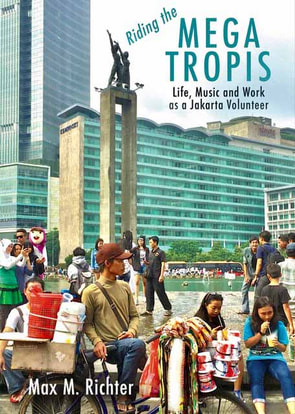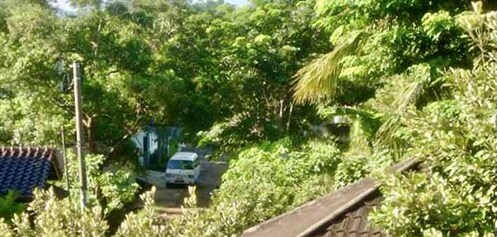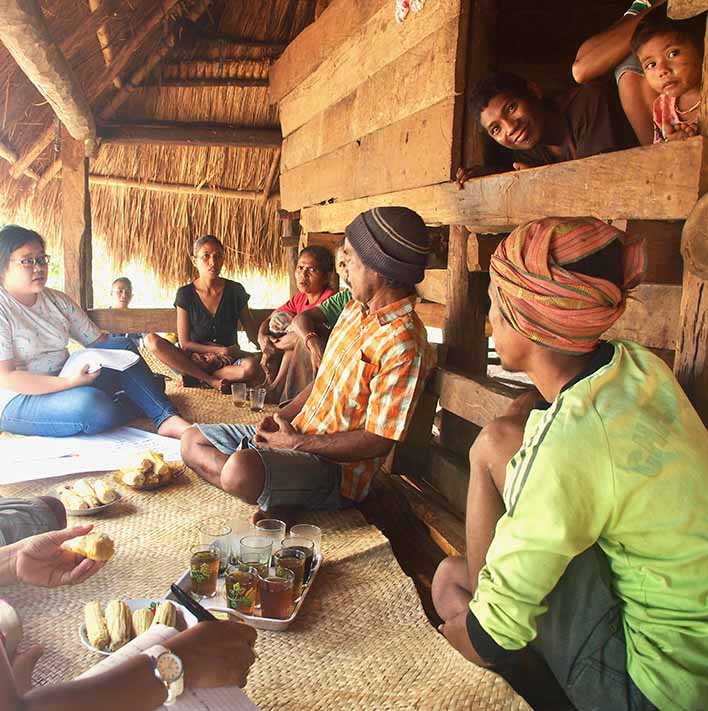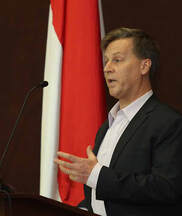
By Max Richter
IN 2009-10 my partner Tina and I volunteered with Australian Volunteers International in the gargantuan city of Jakarta, Indonesia’s capital and the world’s second-largest urban conglomerate after Tokyo. Citizens and foreigners alike have long lamented Jakarta’s crazy traffic jams, heavy smog and polluted waterways, flash floods, social inequalities and corruption. And yet, with so many interesting people and its diverse and sometimes bizarre offerings, a certain fondness for Jakarta also tends to pervade.
In mid-2010 I returned to Australia to work at Monash Uni with a plan to write a book on these “love and loathe” experiences. Mega Tropis: Life, Music and Work as a Jakarta Volunteer is now finally published. Last week I met up with the editor and owner of the publishing house in Healesville and picked up the hundred copies in four neat cardboard boxes.
IN 2009-10 my partner Tina and I volunteered with Australian Volunteers International in the gargantuan city of Jakarta, Indonesia’s capital and the world’s second-largest urban conglomerate after Tokyo. Citizens and foreigners alike have long lamented Jakarta’s crazy traffic jams, heavy smog and polluted waterways, flash floods, social inequalities and corruption. And yet, with so many interesting people and its diverse and sometimes bizarre offerings, a certain fondness for Jakarta also tends to pervade.
In mid-2010 I returned to Australia to work at Monash Uni with a plan to write a book on these “love and loathe” experiences. Mega Tropis: Life, Music and Work as a Jakarta Volunteer is now finally published. Last week I met up with the editor and owner of the publishing house in Healesville and picked up the hundred copies in four neat cardboard boxes.
Jakarta is front and centre the subject of Mega Tropis, but most of the writing took place in Bass Coast on Bunurong land. In 2014 Tina and I moved from our rented flat in Elwood to a house by a bush reserve near the southern edge of Wonthaggi. Wonthaggi’s relative affordability was a factor in the move, but also Tina wanted a garden and I wanted to be near the ocean. From my keener surfing days growing up in “the Valley”, I knew the coast reasonably well from “the Prom” to “the Island”. Nowadays we’re happily settled here and can’t imagine moving on again.
Most of the work on Mega Tropis took place at home, punctuated with regular walks around nearby Tank Hill reserve. A day of rewrites sometimes began with a bike ride along the East Area rail trail. If conditions were right and my postie or other paid work commitments under control, it was down tools for a couple of waves on my 8-footer, usually by the Invy Surf Life Saving Club. Social events through my involvement in the Energy Innovation Co-operative, council/community initiatives and others provided a good indirect sounding board. As did visits to the Kongwak market, Archies Creek gigs and collaboration in the Coastal Connections project. An occasional trip to Philip Island – to Cowes or natural environments or ideally both – was always reinvigorating.
There were also moments when writing and setting came into sharp relief. After too long reliving our traumatic flood experience I drove up to the hills near Jumbunna and soaked in the grand view. Amid agonising over how to word a religio-political intrigue I drove to Undertow Bay and plunged into the ocean. Towards the end I sometimes took hard copies of tricky sections to Cutlers Beach and with pencil in hand nutted through them there. Sitting down with the wild rugged coast before me and reflecting on the long history of indigenous Australian knowledge and familiarity with it, these always gave me inspiration and a fresh perspective.
There were also moments when writing and setting came into sharp relief. After too long reliving our traumatic flood experience I drove up to the hills near Jumbunna and soaked in the grand view. Amid agonising over how to word a religio-political intrigue I drove to Undertow Bay and plunged into the ocean. Towards the end I sometimes took hard copies of tricky sections to Cutlers Beach and with pencil in hand nutted through them there. Sitting down with the wild rugged coast before me and reflecting on the long history of indigenous Australian knowledge and familiarity with it, these always gave me inspiration and a fresh perspective.
The relatively isolated coast in a sense represents the opposite to Jakarta: one is stiflingly hot, struggles to have clean air and bustles with people; the other sometimes bone cold, always pristine and often with no other human in sight. In another sense – as evident through climate change and more recently disease, along with positive aspects of new technologies and globalisation – distances between tropical megacities and Australia’s southern coastlines may not be so great. Social/cultural anthropology – my main area of study over the years – also helps to identify common threads by demystifying the exotic or strange and critically questioning the apparently familiar.
Mega Tropis is on volunteering in Southeast Asia, but it’s centred on fairly universal themes that I hope might also pique the interest of non-specialist readers: establishing and maintaining cordial neighbourhood relations; dealing with hazards and disasters; interacting with government bodies and others to learn about, discuss or advance an agenda; catching up with friends, going for a browse or stroll or to a gig.
The book concludes on areas especially close to my heart – cultural tourism, green spaces and community arts – whether I be in the middle of Jakarta or edge of Wonthaggi.
Mega Tropis: Life, Music and Work as a Jakarta Volunteer is available for $35 at the Wonthaggi Market (‘opposite Bunnings’) and ArtSpace, both in Wonthaggi. Alternatively, please contact [email protected] to arrange a postal delivery ($10).
The book concludes on areas especially close to my heart – cultural tourism, green spaces and community arts – whether I be in the middle of Jakarta or edge of Wonthaggi.
Mega Tropis: Life, Music and Work as a Jakarta Volunteer is available for $35 at the Wonthaggi Market (‘opposite Bunnings’) and ArtSpace, both in Wonthaggi. Alternatively, please contact [email protected] to arrange a postal delivery ($10).


